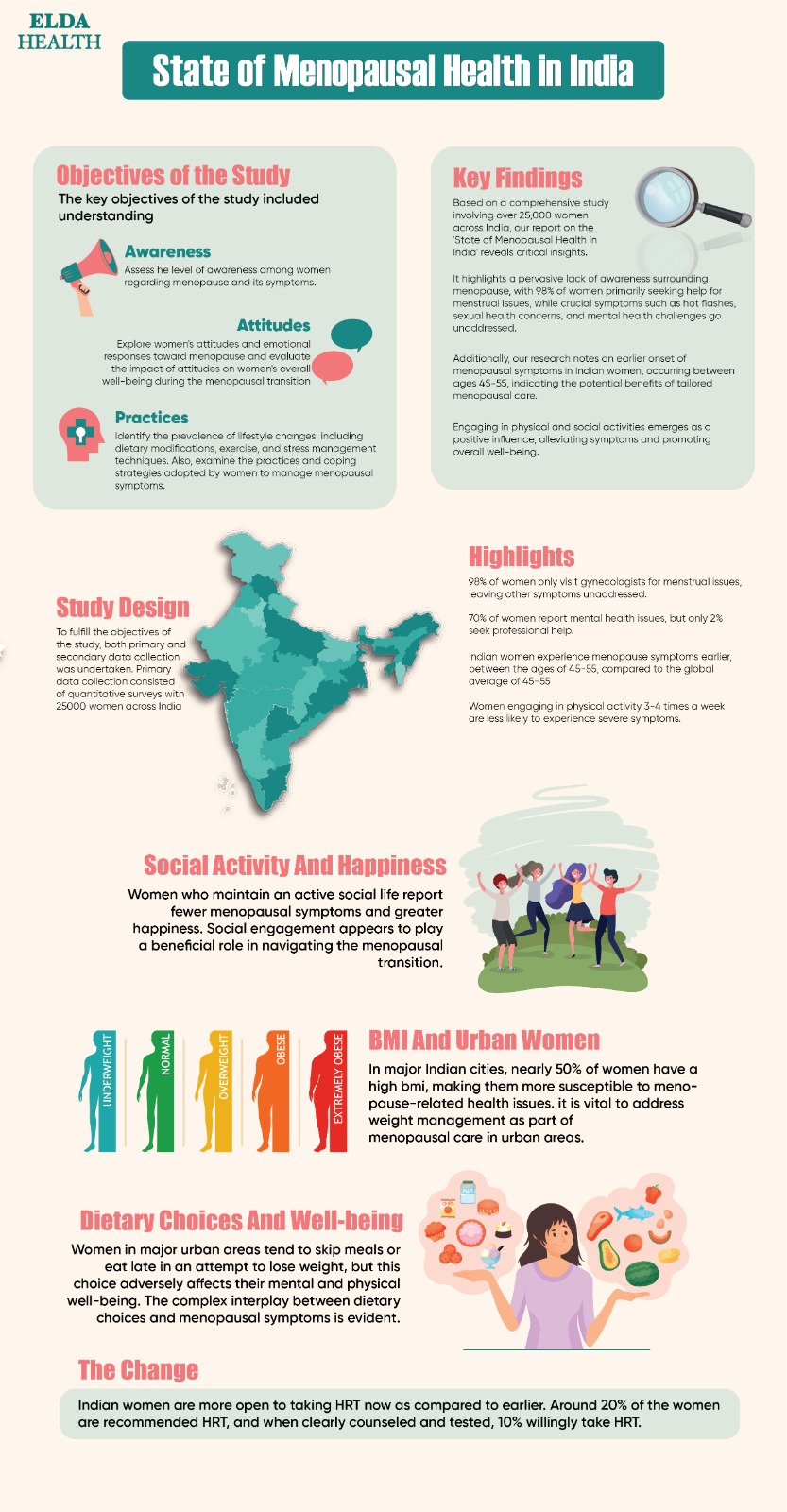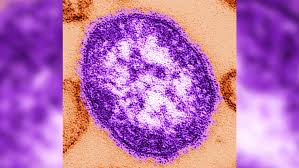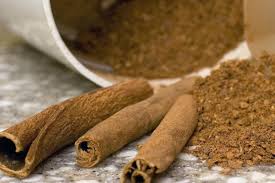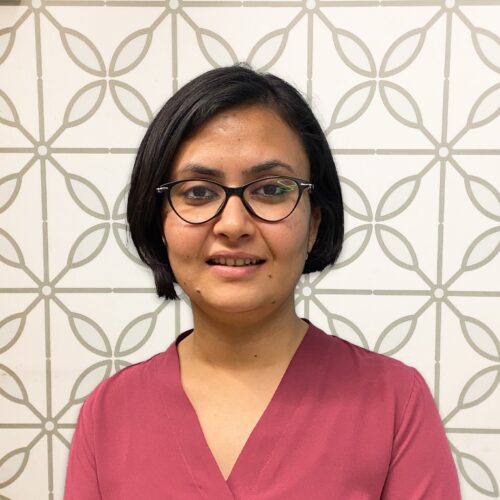Elda Health Releases Report on State of Menopausal Health in India
Based on a study of over 25,000 women pan India, the report highlights various challenges faced by them and how to overcome those Elda Health India’s first and only full-stack, one-stop digital FemTech health start-up catering

Based on a study of over 25,000 women pan India, the report highlights various challenges faced by them and how to overcome those
Elda Health India’s first and only full-stack, one-stop digital FemTech health start-up catering to women during their midlife menopausal and peri-menopausal years, today released a report titled ‘State of Menopausal Health in India.’ Based on a comprehensive study of over 25,000 Elda customers across India, the report sheds light on the pervasive stigma surrounding menopause in the country and the significant barriers preventing women from seeking help for their symptoms.
The study reveals startling statistics, showing that 98% women in their menopausal age largely only visit gynecologists for heavy bleeding or vaginal discharge issues, while period related symptoms such as hot flashes, sexual health concerns, and mental health issues often go unaddressed. Other symptoms that women face include fatigue, sadness, hair fall, weight gain, anger, anxiety, various types of body pains, insomnia, memory loss, and skin issues. The stigma around menopause is a substantial barrier to open discussions, with many women fearing that their families or workplaces won’t understand what they are experiencing.
The report highlights that while 24% of the women suffer from sexual health concerns, only 6% of women seek help for sexual health concerns. While 40% experience hot flashes, a startling 70% of women report mental health issues like mood swings, anger, and sadness. However, only 2% of those suffering from mental health issues seek professional help.
The study also finds that Indian women typically experience menopause between the ages of 40 and 46, earlier compared to global counterparts who hit this phase at age 45-55 and above. This earlier onset emphasizes the need for tailored menopausal care in India.
Speaking about the findings, Dr. Ameya Kulkarni-Kanakiya, Co-Founder, Elda Health said, “Lack of initiative and motivation is a common cause of concern in following the otherwise common healthy lifestyle habits. This amplifies the need for external interventions and coaching to take control of one’s health during menopause. It is crucial for women to understand that regular exercise, quality sleep, and a balanced diet can make their menopausal transition smoother and reduce the severity of symptoms. Neglecting these aspects can exacerbate symptoms that commonly manifest in one’s 40s, such as hot flashes, period health issues, sleep problems, urinary issues, and mental health challenges. At Elda Health, we have created a supportive ecosystem to address women’s physical and mental health, sleep, nutrition, and exercise needs.”
Adding further, Ms. Swathi Kulkarni, Co-Founder and CEO of Elda Health said, “Menopause is a natural stage in every woman’s life, yet there is limited awareness about its causes, symptoms, and strategies to alleviate challenges. Elda Health is dedicated to bridging this information gap and providing expert care and advice for women navigating menopause. We have recently also expanded our services to include a range of specially curated products designed for women. This transition signifies our evolution from a service-centric entity into a comprehensive one-stop shop for women’s wellness. Our goal is to empower women during menopause, turning it into a time of opportunity and self-reinvention, not merely a period of endurance.
The report also highlights the significant impact of dietary habits and lifestyle on the severity of menopausal symptoms. Women engaging in physical activity 3 to 4 times a week are significantly less likely to experience severe symptoms. For those who exercise often, symptoms like anxiety, tiredness, mood swings, and anger stand at 41%, 37%, 41%, and 36%, respectively. This is in comparison to those who never exercise the percentages for which stand at 59%, 63%, 59%, and 64%.
Other Findings from the Report:
- Socially active women experience fewer menopausal symptoms and greater happiness.
- A family history of diabetes, blood pressure, or heart disease contributes significantly to metabolic issues in these women when they reach menopause.
- Women in major cities, including Delhi, Mumbai, Bangalore, Kolkata, Ahmedabad, and Kochi, exhibit high BMI, with nearly 50% of them being overweight. This makes them more susceptible to menopause-related health issues.
- In major urban areas such as Delhi, Mumbai, Bangalore, Kolkata, Ahmedabad, and Kochi, nearly 43% of middle-aged women skip meals or eat late to lose weight and avoid unhealthy foods. However, this dietary choice adversely affects their mental and physical well-being, highlighting the complex interplay of dietary choices and menopause symptoms.
- Indian women are more open to taking HRT now as compared to earlier. Around 20% of the women are recommended HRT, and when clearly counseled and tested, 10% willingly take HRT.
- About 60% of women make independent decisions about their medical expenses in contrast to 40% of those who need counselling from their spouses to make that financial decision. Interestingly the pattern is similar between working women and homemakers.
Elda Health’s report not only brings attention to the challenges faced by women during menopause in India but also emphasizes the need to raise awareness about it being a natural phase of life with available treatment options. It is a crucial step in breaking the silence and helping women embrace this significant life transition.






